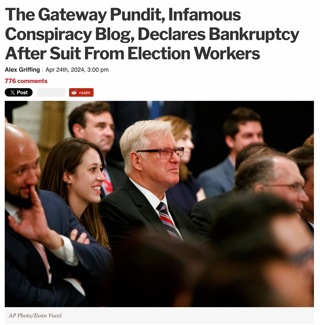Why the GOP Will be Forced to Adjust Course on Climate Change
Risk: U.S. Hit With 90% of the World’s Disaster Costs in 2012 — 01/04/2013 — www.eenews.net
A few more years of this and their positions on Climate become entirely untenable simply because it’s their constituents suffering the worst. If you don’t think people didn’t notice their AC costs across the South last summer, you are fooling yourself and discounting one of the hidden costs of climate change for Red States. Those costs coupled with these will drive a change.
The United States led the world in disaster losses last year as a massive drought seared Midwestern crops in the field and as superstorm-driven waves wreaked havoc and blackouts along the East Coast. They added up to one of the most expensive weather damage years on record.
Nearly all the world’s economic damage from storms, drought, fire and earthquakes was centered in the United States as it experienced the highest temperatures ever recorded, according to Munich Re, a global reinsurance company. More than 90 percent of insured losses worldwide occurred in the United States, well above the 30-year average of 65 percent.
Half this house was left standing in Union Beach, N.J. Superstorm Sandy took the other half. Photo courtesy of Flickr.
Superstorm Sandy, a massive Atlantic storm that heaved ocean surges of up to 15 feet onto shorelines in New York and New Jersey, caused more economic damage worldwide than all its disastrous counterparts in a year with $160 billion in global costs.
Insurers are still tallying the October storm’s impact, but it’s expected to cost the industry $25 billion or more, surpassing the financial losses of the Sept. 11, 2001, attacks and perhaps even topping the wreckage of Florida’s Hurricane Andrew of 1992. Sandy promises to be the second or third costliest disaster in U.S. history. Its total economic costs are estimated to be more than $50 billion.
The widespread drought that seared Midwest farm fields and stranded Mississippi River barges ranks as the second-most expensive disaster globally last year. It inflicted $20 billion in damage on the economy, most of which was insured through government crop insurance programs.











